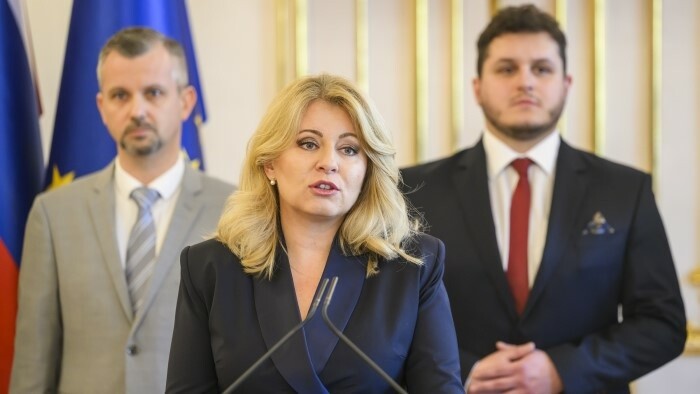"What happened in this case, in terms of both the process and the content of the amendment, is absolutely extraordinary," she remarked.
If the Court agrees, suspension will mean several months delay before the new Penal Code comes into effect.
Reacting to President Caputova's words, Prime Minister Robert Fico said that he sees a "further thousand reasons" to adopt the amendment to the Penal Code, which was approved by parliament. “She didn't use her right to veto the bill when we could have fixed some of the little things. We offered her our hand to cooperate, but she had to refuse it.”
There is now an open battle between the cabinet and the President. Both are playing for time.
The government waited six days to send the bill to the President’s office. For a reason, says Erik Láštic, head of the political science department at Comenius University: "The ruling coalition is currently trying to use everything possible in its, in quotes, competence and direction to delay the process and to eventually achieve that the law will simply come into force on 15 March. Indeed, it would only take one day for the law to come into force and that objective, which seems to be the main objective, of the governing coalition would be fulfilled.
Any decision of the Constitutional Court only acquires force after it is published in the so-called Collection of Laws. So this would have to be before 15 March."
Radoslav Procházka, a former politician and constitutional lawyer, says it usually takes weeks, but the Court can act quickly, if it wants to: "One example, which is different, is that when the Constitutional Court ruled on the decree of the Chief Sanitary Inspector and suspended the effectiveness of one section, it did so on 27 July and just 4 days later, on 31 July, it was published in the Collection of Laws."
The Ministry of Justice, which prepared the amendment, is responsible for this. Political scientist Erik Láštic comments on this scenario - also in the context of the opposition demonstrations: "In that case, I am not afraid to say that we can really count on a constitutional crisis, which Slovakia has not experienced to this extent in the last X years."
(TASR, RTVS)

